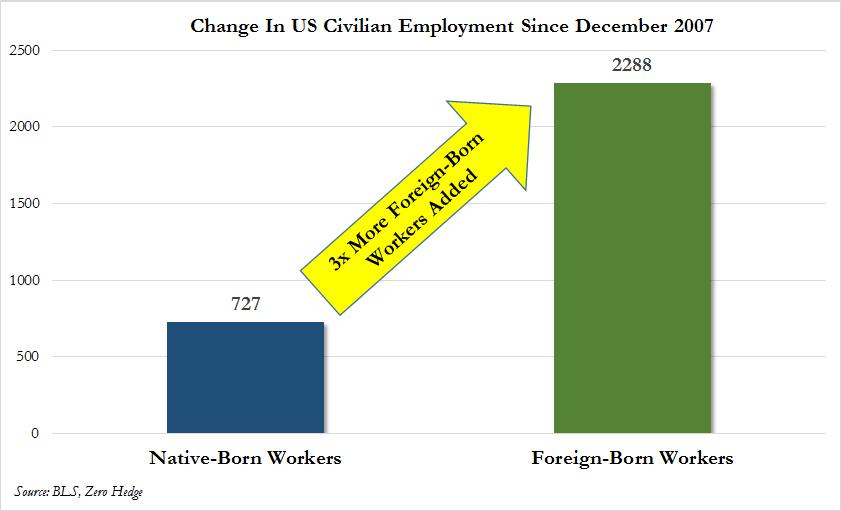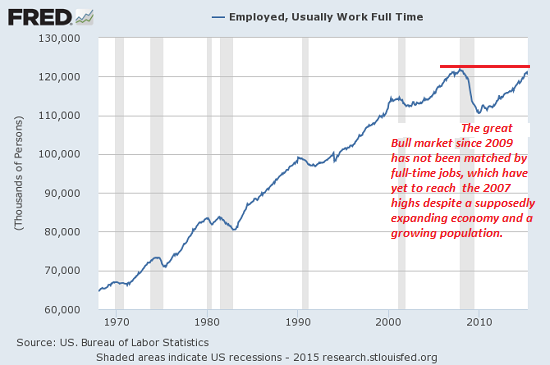
How The GOP Could Win Pennsylvania
With nearly a million untapped voters in the redder counties of Pennsylvania, we really don't know what the GOP's ceiling actually looks like.
By Brandon Finnigan
Hello, party leaders, potential candidates, lifelong donors, and long-suffering base voters. It's me, the guy who constantly asks about Pennsylvania. The guy who drives people to muting me on Twitter because I won't stop talking about Pennsylvania. Who is already showing flashcards of Collar Counties to his seven-week-old son.
Recently, I received an email from a follower of the Decision Desk, the gist of which was asking me, yes or no, do I really believe the Keystone State is winnable.
Well, here's my answer: Yes.
Yes, this state, which hasn't gone for a Republican president since H.W. Bush in 1988, is absolutely winnable. But not for the reasons often cited (its eroding partisan voting index, older demographics, etc). In fact, the thing has driven me along in my obsessive quest for the great beast east of Ohio is an article Nate Cohn, now with The New York Times, but then with The New Republic, wrote on the eve of the 2012 election: "Romney has a problem in Pennsylvania: Math." This passage, in particular, has stuck with me for three years:
It's easy to understand why Romney would invest in Pennsylvania. Like Missouri or North Carolina for Democrats, Pennsylvania is what I call a 'spreadsheet state.' When you start plugging in favorable numbers for the traditionally disadvantaged party, it's too easy to get up to 48 percent of the vote, or even more. But those final hundred thousand votes are incredibly difficult and require something extraordinary.
I think I found it. But before we get to that, let's review the problem with Pennsylvania.
Why Republicans Lose Pennsylvania
When the Republican Party last carried the state, it did so on the backs of massive support from suburban Philadelphia. In the City of Brotherly Love, Bush I managed to snag a third of the county vote (219,053 votes, if you are one of those guys who like to quote vote totals to strangers on the street). With 20-plus margins in Montgomery, Chester, Delaware, and Bucks, why in heavens was the state a two-point squeaker?
When the Republican Party last carried the state, it did so on the backs of massive support from suburban Philadelphia.
Because metropolitan Pittsburgh was union blue. Westmoreland County went to Dukakis by 11 points, Washington by almost 25 points, Allegheny by 20, and so on. The margin Dukakis had out of the Western third of the state was greater than the margin he enjoyed in Philly.
It seems almost inconceivable now. President Clinton and candidates Al Gore and John Kerry would go on to secure the western Pennsylvania vote, albeit by smaller margins as the years went on. Even President Obama managed to barely carry the metro area in 2008. He lost it—a first for a Democrat since 1972—to Mitt Romney in 2012. However, he no longer needed it: he had the Collar.
Thanks to a blend of suburban moderate rejection of conservative candidates, wildly successful voter drives by Democrats, and the lack of incentives for county party offices to pump out a presidential-level effort, the four counties mentioned with 20-plus margins in 1988 have trended Democratic for the last 30 years.
Bucks showed some promise in 2012, voting more in Romney's favor than it had for President Bush in 2004, perhaps a reflection of Romney's last-ditch visit there late in the campaign. Chester seemed to be reverting more to its pale-red nature (it went to Romney by around 500 votes) too, but in general, the cerulean hue of southeast Pennsylvania remained in the last election.
Meanwhile, things went from lopsided to laughable in the city of Philadelphia. Remember that vote total of H.W.'s in 1988? Now, cut that in half. The number you are left with is still larger than what Romney managed to eke out of it. President Obama enjoyed a monstrous 492,000-vote edge there. With the terrible trends in the eastern third, surely, it makes sense for Republicans to just throw in the towel here. Put down the harpoon. Go home. Forget about the great white whale.
Nah.
Things Are Looking Up for the GOP
Republican fortunes brightened notably in the western third of the state, and this has been happening for far longer than President Obama has been on the scene. One of the frequent assumptions I encounter is that the white, blue-collar Democrats that still dominate the region are voting on race now but will pounce on a Clinton. Yet Republicans have made incredible gains, and enjoyed a nice swing in voter registration out there beyond just these last six years.
Local Republican efforts and the presence of third-party groups like Americans for Prosperity has paid off quite well in the west.
This was happening from 1988 through 2004, with Bush improving in 2004 on his 2000 numbers, and his 2000 numbers improving on his father's numbers in 1992. It may have accelerated under the current president, but the trend has been there for some time. As mentioned earlier, President Obama became the first Democrat in decades to lose the Pittsburgh media market outright. The state is no longer "Pittsburgh and Philadelphia with Kentucky in-between," as James Carville once summed it.
Local Republican efforts and the presence of third-party groups like Americans for Prosperity has paid off quite well in the west, and with similar demographics in northeastern Pennsylvania (albeit poorer), there is still room to grow with this particular group. This is hardly enough to carry the state, of course: Pittsburgh is slowly aging, its population declining compared to the sustained growth in the state's eastern third. More would be needed to offset the gamma-ray burst of Democratic votes emanating from Philadelphia.
So, what about independent voters? Well, that's a problem, because Pennsylvania has very few of them. While still writing for The New York Times, Nate Silver showed how a greater preponderance of nonpartisans in a state would make it more likely to swing. It is why Romney, McCain, Bush, and every other presidential contender spends so much focus on places like Iowa and New Hampshire: if they can convince the mushy middle, conventional wisdom says they're halfway home. But I have a counter-argument.
Democrats Have Been Getting Out There
Committed partisans are the most reliable participants in elections, and often vote more than 90 percent of the time with their stated party. Independents, on the other hand, are mostly lying (a huge portion of them are simply disaffected Democrats or Republicans who, when pressed, would likely vote for the party they "left"), and when truly independent, are incredibly unreliable as a bloc from cycle to cycle. If they are the true "pox on both houses" types, and that terribly undecided, they may not even bother to vote. To win a major election, greater emphasis must be placed on finding, registering, contacting, and turning out new voters.
To win a major election, greater emphasis must be placed on finding, registering, contacting, and turning out new voters.
This is exactly what Democrats did throughout the country after 2004, and they certainly gave Pennsylvania a good one-over. From 2000 to 2014, Democratic and third-party efforts tipped the scales of registration even further to the Left, expanding the blue team's edge over Republicans by almost 650,000 voters. President Obama received more votes in 2012 than Sen. John Kerry did eight years prior, even with a drop-off from his 2008 high, a testament to his team's incredible turnout operation.
Despite that sizable shift, the actual impact on elections from 2000 to 2012 was miniscule: the president's margin in the Keystone in 2012 was only about 105,000 votes wider than Gore's had been. How does his performance over Gore's stack up with other states he carried?
In Virginia, the margin swung by over 379,000 from 2000. In Colorado, 283,000. Wisconsin, 218,000. Iowa, 88,000. Nevada, 89,000.
Let's not forget that Romney spent a fraction in Pennsylvania of what he had spent in all of these states. Only Colorado and Virginia would wind up closer for him, by fractions of a point in the former and a point-and-a-half in the latter. The state has been just sitting there, despite its bluing Philly 'burbs, with very little focus by the national party on registering voters and developing an effective GOTV. It is infuriating.
The Secret Is Unregistered Voters
So is there a path to winning the Keystone? As I said before, yes. The secret lies not with the current number of registered voters, where Democrats dwarf Republicans by a cool million, but in the number of citizens of voting age not registered. Finding them and goading them into registering won't be easy, but they aren't a rare breed: per current registration figures provided by the Department of State, and the Census estimate of current voting-age population, there are more than 1.6 million such untapped voters residing here. Heck, some of them may have already registered once before, but it lapsed.
Attesting to the sheer power of that Democratic voter drive that started a decade ago, only 14 percent of them reside in Philadelphia or Allegheny County. A clear majority, 62 percent to 38 percent, of this untapped mass resides in counties that went to Romney. I broke down the numbers and converted it into a simple diagram, where the counties have been re-sized (or outright eliminated if they failed to clear even half a percentage point) according to how big a share of the untapped vote they account for:
We cannot assume these voters are natural Republicans just because they reside in friendlier counties (ex: back to Cohn's 2012 article, Berks County has a sizable Hispanic population now). It als
How The GOP Could Win Pennsylvania
|
http://thefederalist.com/2015/06/17/how-the-gop-could-win-pennsylvania/
read more


















